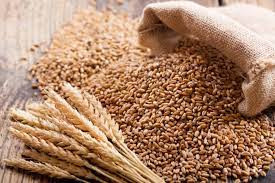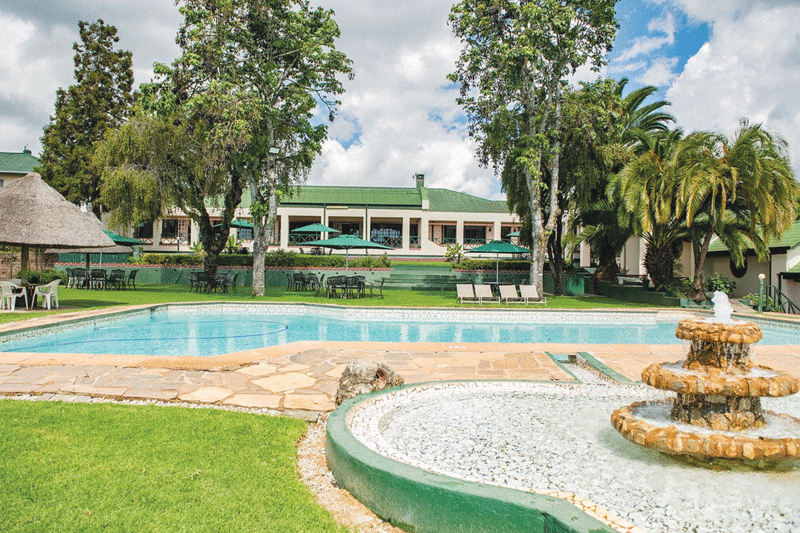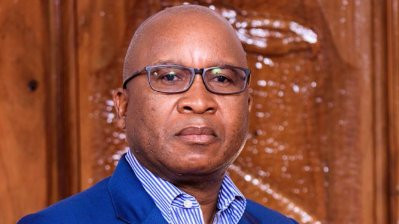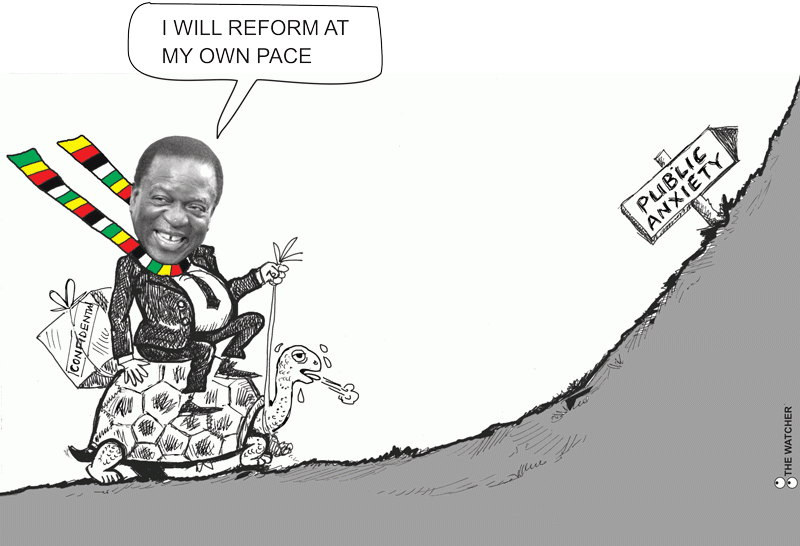
THE Russia-Africa summit, which was held from July 27-28 in Moscow, presented an opportunity for participants to evaluate their association and reset it for an overall positive outcome.
Africa has so far not managed to leverage on its mutual trust and historical bonds with the Eurasian giant. The tepid investment, trade, technology and cultural exchanges between the two points to a conspicuous chasm that long-needed to be filled.
Russia-Africa trade, for instance, was an uninspiring US$18 billion in 2022. Though the figure has been increasing through the years, it is a stark difference from Africa's interaction with the West, which is much larger.
On the other hand, sceptics have conveyed their concerns that Russia is a suspicious partner, incapable of bringing value to the African continent, on account of its lack of financial capital, association with mercenary armies and the risk associated with interacting with it, over the West.
Nevertheless, if African nations use discretion, sovereignty and strategic ability, there are rewards to be reaped, mutually. Below are a number of areas outlining the potential which this partnership holds for all members.
Agriculture
Russia is an agricultural giant. It is the largest exporter of wheat on global markets, with an impressive 20% share. Several other grains and agricultural commodities, such as corn, sunflower oil and barley originate from their region, and are a vital part of global supplies.
Apart from food, the nation is a crucial source of fertiliser, worldwide, being an eminent supplier of ammonia, urea, MOP (muriate of potash), MAP (monoammonium phosphate) and DAP (di-ammonium phosphate) fertilizers.
- Addressing unfair trade key to transforming African food systems
- Urgent economic structural transformation necessary
- Village Rhapsody: How Zimbabwe can improve governance
- Residents finger ZETDC employees in cables theft
Keep Reading
This conveys the need for establishing efficient trade mechanisms for food and fertilisers for the continent's food security. Without such, the risk of food inflation and unavailability remains urgent.
The geopolitical tensions with Nato point to a more food insecure world. Resolving risks in this area is imperative.
Additionally, meaningful knowledge exchanges and agribusiness opportunities can be targeted. In a time when food prices are elevated, Africa needs to open up to Russian agricultural firmsso that they participate in farmingon the continent.
In this regard,production will target the leading cash crops and export earners. For instance, Zimbabwe may encourage prominent Russian firms to produce part of their global maize, barley, and wheat output in the country.
This is obviously a low hanging fruit, as demand exists and international prices are firm. The expertise, which Russia has in specialised farming techniques, and international marketing and logistics of agricultural commodities, is an opportunity for generating sustainable wealth.
Energy
Oil is an indispensable resource in the 21st century. The oil market of 2022 is estimated to be in the region of US$2,2 trillion, at an average consumption of 80,75 million barrels per day.
Zimbabwe consumed 1,8 billion litres of fuel last year, according to the Ministry of Energy and Power Development. This can equate to a value of between 5%-7% of the country's GDP.
Most countries in Africa, including Zimbabwe, depend on imports for oil and petroleum products. An increase in oil prices, naturally ignites impertinent inflationary pressures, which are difficult to resolve.
On the other hand, Russia has been reported to have been selling discounted oil to India, North African nations, China and some countries in the Far-East.
If Zimbabwe purchases oil products from Russia at a 20% discount, for instance, this may imply savings of around US$200 million or more, each year.
The bargains are much greater for sophisticated economies, such as South Africa. Understanding that Russian coal was selling for as much as 60% discounts on international prices in 2022, according to official communication, advises that a 20% discount on oil is not wishful thinking.
In this regard, oil importing countries on the continent should grasp this opportunity and encourage that petroleum resources are channelled mainly from Russia.
International relations
Africa needs a strong and economically prosperous Russia, for its own security and sovereignty. A multi-polar world ensures that there are no exclusive political blocs, which determine international laws, political climate, or the economic fate of smaller, weaker, or poorer nations, without considering their challenges.
The oversized voting rights of Western nations at the International Monetary Fund (IMF), World Bank, and various United Nations fora, for instance, need to be guided by an acknowledgement of smaller nations, without which, the latter would be imperilled.
Unfortunately, the case has largely been that, developing nations, including those on the African continent, have not been taken into account when policies, and protocols are developed by several multilateral organisations.
By all means, Africa needs Moscow and Beijing’s support, if the reformation of these organizations is going to be achieved.
Finance and trade
When the US dollar rises, emerging and developing economies suffer the most. According to the IMF, a 10% appreciation of the US dollar, decreases the gross domestic product (GDP) of emerging market economies by a troubling 1,9%.
The consequences are felt more acutely by developing economies. At the same time, the role of the dollar in international trade needs to be re-evaluated.
Since the currency is not backed by assets, some experts argue that there is no need for it to be used in over 80% of international trade transactions and almost 60% of global foreign exchange reserves, as is the current situation.
From that, they suggest that the dollar is overvalued. Although it uses roubles, Russia also has a dollar problem. The removal of Russian banks from the dollar dominated SWIFT platform, means that Russian businesses cannot directly get revenue or make payments in dollars for international trade.
Therefore, since this is a shared existential challenge, both African nations and Moscow may begin deliberations on how to replace the dollar.
Regardless of the lower trade volumes between Russia and Africa, the thrust towards an alternative currency needs to be put in motion, as it serves mutual interests.
The overflowing natural resources in both territories provides an opportunity for the creation of an asset-backed digital currency. The alternative money may be backed by gold, oil, coal, lithium, silver or other commodities.
A consideration of the key resources available in prominent African economies will prove useful in this regard. As for Russia, any commercial commodity will suffice as the nation is endowed with plentiful resources.
The technological advancement and integrity of Russia, imply that it is judicious to give them the responsibility to manage the ledger or digital administration of the currency.
If crafted perfectly, the new currency can be a good competitor to the dollar, whose role in global financial architecture has left a huge opportunity owing to fundamental problems associated with it.
Additionally, joining BRICS should be high on the agenda of alienated African countries. Russia is an integral member of the conglomerate and can facilitate easier access to the group.
The bloc has its own multilateral bank (NDB), prominent emerging economies and the potential to house more than half of the world's population.
Aligning with such a useful union as an alternative to the current multilateral systems will bring key advantages.
Firstly, budgetary support will be issued without strings attached for the countries in need of credit.
Secondly, there is less room for manipulation of the sovereignty of a member or its political systems.
Thirdly, the massive population of current member states provides markets for exports.
Additionally, the shared perspective in international relations, with current participants, infer that negotiations at other international platforms will be streamlined.
Extractive sector
Russia is the world's third-largest gold producer, oil producer, and coal exporter. African nations with a desire to raise the prices of their commodities (gold, oil, coal) on international markets can work with Russia towards influencing the pertinent market dynamics.
Cooperation in determining the supply of gold, oil and coal, amongst others, can be a robust move towards addressing the budgetary support needs of countries on the continent.
This is what OPEC does, as oil producing nations leverage their resources for maximum benefit and improved citizen welfare.
Multilateral meetings are held regularly by OPEC, in order to curb and manage oil supply on international markets, with the outcome of prices which are sustainable for oil industries in the oil exporting countries.
The same structures can be set for natural resources, which both Russia and Africa have in common.
Partnerships in coal extraction are another important area for cooperation. Zimbabwe, currently mines around two million tonnes of coal, annually.
However, the reserves of over two billion tonnes reported by government indicate that current production is a long way from optimal capacity.
It is possible to achieve five to seven million tonnes per year, depending on investments and cooperation created in the sector.
At record prices of around US$200 per tonne in 2022, the nation missed out on the windfalls, as less than 200 000 tonnes was exported. Much of the coal mined in the country was used for domestic power generation.
An additional three million tonnes in production would have earned approximately US$600 million, with roughly US$450 million of that being super profits (exceeding, standard earnings).
Transport and logistics
Railway is the future. Climate change and depleting world oil resources suggest that alternatives to road freight and passenger transport need to be put in place.
Russia, having the third-largest railway network (85 500km) globally, has skills and competences required in assisting African nations deepen their investments in rail, or manage the transition to the alternative mode of transportation.
Forming joint ventures and investing on key lines of the network in Africa, on a corridor (one at a time) basis, can address the issue of limited financial capital.
In the case of Zimbabwe, a 70-30 Russian-Zimbabwean joint venture, can be established for revitalising crucial freight railway lines, such as the Maputo, Beira, Durban or DRC corridors.
The National Railways of Zimbabwe (NRZ) has massive business to handle, particularly from the domestic mining sector, which can provide assured recuperation of any investments assigned to railway.
New opportunities such as lithium and the potential of the coal sector show that if the NRZ has enough capacity, it can surpass its past glory of moving 18 million tonnes per annum in the late 1990s.
Reviving the railway operator also implies forex earnings, employment and higher GDP.
Conclusion
It is, therefore, imperative for African nations to be clear on their goals and follow through with implementing agreements made with Russia, as the opportunities that exist can yield bountiful rewards for all.
Tutani is an entrepreneur, political economy analyst — [email protected].











